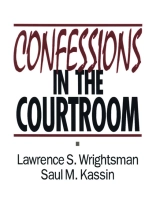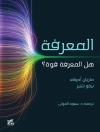When the prosecution introduces confession testimony during a criminal trial, the effect is usually overwhelming. In fact, jurors′ verdicts are affected more by a confession than by eyewitness testimony. While eyewitness studies are massive in numbers, the topic of confession evidence has been largely ignored by psychologists and other social scientists. Confessions in the Courtroom seeks to rectify this discrepancy. This timely book examines how the legal system has evolved in its treatment of confessions over the last half century and discusses, at length, the U.S. Supreme Court′s decision regarding Arizona v. Fulminante which caused a reassessment of the acceptability of confessions generated under duress. The authors examine the causes of confessions and the interrogation procedure used by the police. They also evaluate the process for determining the admissability of confession testimony and provide excellent research on jurors′ reactions to voluntary and coerced confessions. Social scientists, attorneys, members of the criminal justice system, and students will find Confessions in the Courtroom to be an objective and readable treatment on this important topic. ‘In this short volume, the authors seek ‘to describe and evaluate what we know about confessions given to police and their impact at the subsequent trial.’ It is a comprehensive review of the social psychological literature and legal decisions surrounding confessions. One of the primary strengths of the manuscript is the interplay between social science and law fostered by the authors′ clear understanding of the boundaries between these disciplines and appreciation of the substantive areas they share. . . . [The authors] have produced a comprehensive and imminently readable legal and psychological treatise on confessions, valuable for established scholars and for students.’ –Journal of Contemporary Criminal Justice
表中的内容
Confessions in Court
The Law
A Historical View
Recent Court Decisions
A Not-So-Quiet Revolution
Police Interrogations
Why People Confess
Psychological Perspectives
Jurors′ Reactions to Confessions Evidence
The Psychologist as Expert Witness
The Future of Confessions
关于作者
Saul Kassin is a Distinguished Professor of Psychology at John Jay College of Criminal Justice and Massachusetts Professor Emeritus at Williams College. Born and raised in New York City, he graduated from Brooklyn College in 1974. After receiving his Ph D from the University of Connecticut in 1978, he spent time at the University of Kansas, Purdue University, the Federal Judicial Center, and Stanford University. He is an author or editor of several books—including Psychology, Developmental Social Psychology, The American Jury on Trial, Duped: Why Innocent People Confess – and Why We Believe Their Confessions, and most recently, The Pillars of Social Psychology. Interested in the psychology of wrongful convictions, Kassin pioneered the scientific study of false confessions for which he has received several awards—including the APA Award for Distinguished Contribution to Research on Public Policy and the APS James Mc Keen Cattell Lifetime Achievement Award for Applied Research. He has consulted on many high-profile cases, served as an analyst on all major news networks, and appeared in several podcasts and documentaries—including Ken Burns’s 2012 film, The Central Park Five.









![的封面 Chisato Nonaka: Transcending Self and Other Through Akogare [Desire] 的封面 Chisato Nonaka: Transcending Self and Other Through Akogare [Desire]](https://static.worldofdigitals.com/thumb_webp/725/9781788921725.webp)


